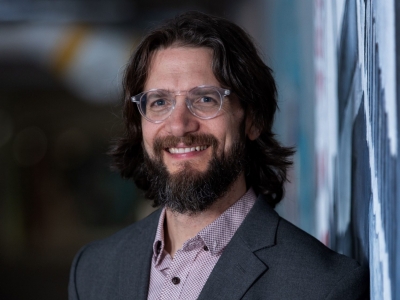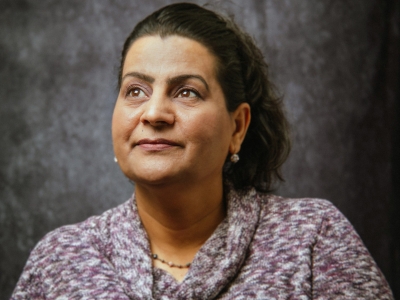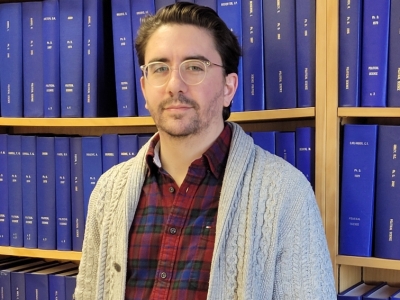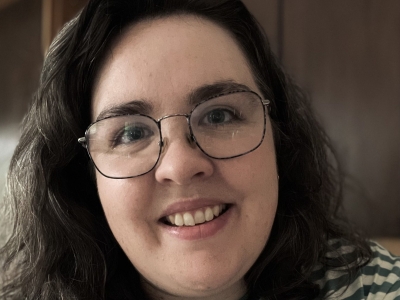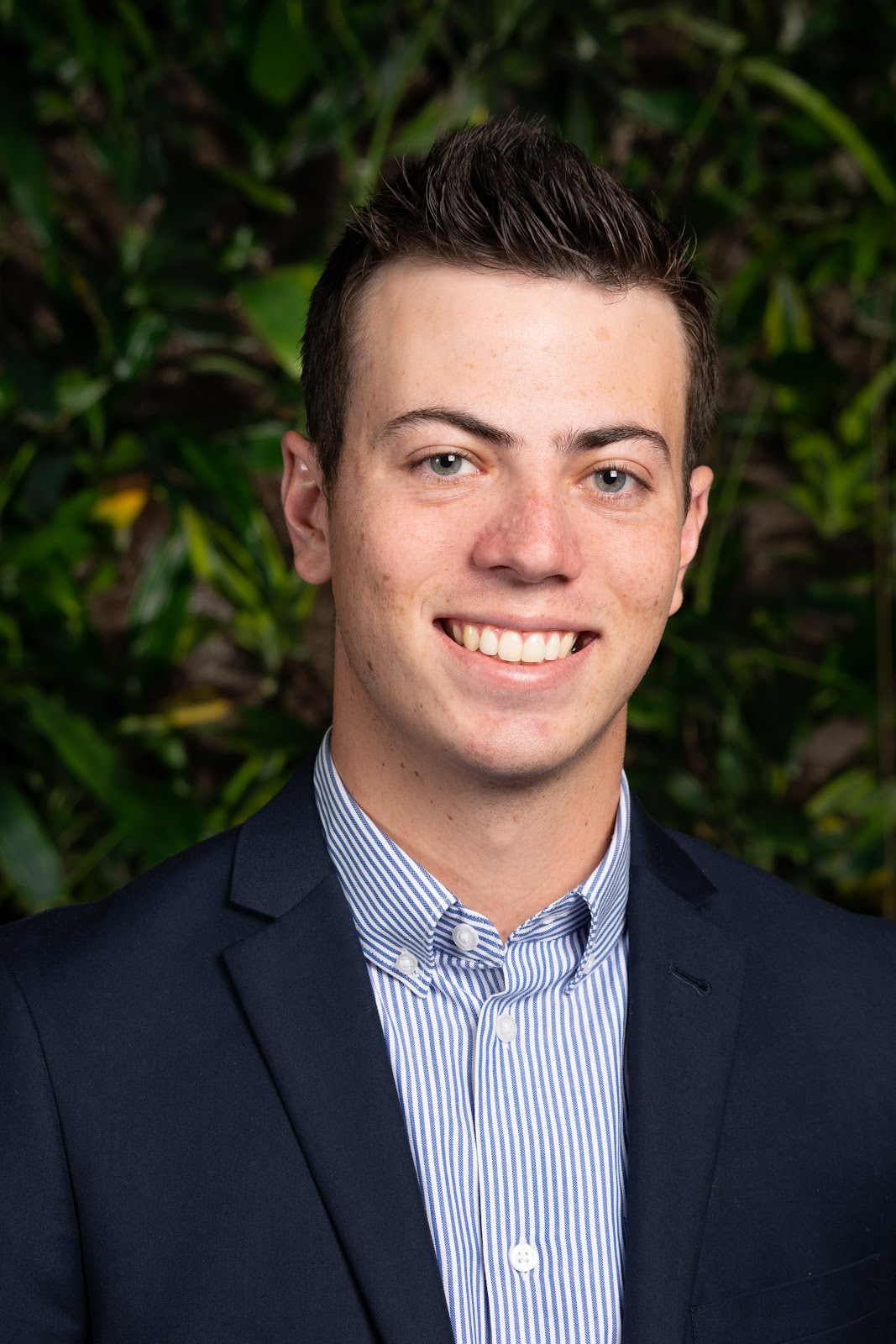
Kevin Budning, PhD candidate, International Conflict Management and Resolution
By Michelle Hennessy
With a master’s degree in political science from the University of Toronto and an undergraduate degree in conflict studies and human rights from the University of Ottawa, Kevin Budning describes being unsure about what exact research question he wanted to pursue at the beginning of his PhD at Carleton’s Norman Paterson School of International Affairs (NPSIA).
However, a terrorism class in his first semester piqued his interest.
“We started looking at statistics about violent extremism,” he remembers, “and I just couldn’t understand why Canada spends so much money countering Islamist terrorism when far-right extremists have committed more attacks and killed more people in North America in the past 20 years.”
Budning read more about the issue and realized it was a fascinating and salient emerging topic with direct policy implications. So, he focused his doctoral research on better understanding the matter.
“One of the things I’m doing is tracking the government’s resource allocation to determine if there is a relationship between certain violent attacks and the resources allocated after those attacks,” he explains. Using the example of the Quebec City mosque shooting in 2017, Budning says his research investigates whether there were relevant programs created, money invested, or legislation passed in the months and years that followed.
“Yes, Islamist terrorism is still the prevalent global threat. But, when we’re looking at Canada, we must look at Canada’s particular threats,” he says.
“The hope is to, aside from raising awareness about the threat of far-right extremism, offer real policy considerations for the government.”
To do this, Budning interviews decision makers in the Canadian and the United States public service, including individuals from the Canadian Security Intelligence Service, Canadian Communications Security Establishment, Global Affairs Canada, Public Safety Canada, the Royal Canadian Mounted Police, the Privy Council Office, the U.S. National Security Intelligence Review Agency, the U.S. Department of State, the U.S. Department of Justice, the Central Intelligence Agency, the Federal Bureau of Investigation, and the Department of Homeland Security, to name a few.
His supervisor, Professor Fen Osler Hampson, has been instrumental in guiding Budning through the research and writing process. “Professor Hampson taught me that simple explanations are the best explanations,” he says. “That’s a really valuable lesson and it’s made my work better. It’s a real skill to take a complicated topic and distill and simplify it to make it palatable for someone who is not necessarily an expert on these issues. Academia is filled with convoluted explanations, often unnecessarily.”
In complement to Budning’s work on right-wing extremism, he also acted as lead researcher to a $240,000 joint project between Carleton and Collins Aerospace on the Impact of Emerging Technologies on Defense Policy.
Budning wasn’t always certain that he was up to the task of leading that research, though. “When Professor Alex Wilner approached me about being the project lead, I said, ‘But, I don’t work on defence or emerging technology’,” says Budning. However, accepting the position turned out to be one of the best parts of his PhD experience.
“I got to work with Collins Aerospace for over two years and interviewed 50 to 60 military personnel, including experts from NORAD, the Canadian Armed Forces, the United States Space Force, the Department of National Defence, and leaders in both industry and academia. We organized several major conferences, and along with Alex and our Collins partner, Guillaume Coté, published several peer-reviewed articles on the subject.”
“Some people doubt the value of a PhD, but I think they couldn’t be more wrong,” states Budning. “NPSIA has taught me how to speak multiple languages: academia, policy, and industry. And I get to work on things that I’m interested in all day.”
“Other schools’ PhD programs train you for academia, but with NPSIA, I’ve spent the past five years working with partners in both the private and public sectors. I’ve also had access to Ottawa networking – other schools don’t have that ‘capital’ advantage.”
In addition to the work experience and networking, Budning emphasizes the social aspects of his PhD experience at Carleton. “I’ve created life-long relationships,” he says.
Self-care, maintaining a personal life, and making time for fun have also played important roles throughout his degree process. “I have two nieces under five years old and I haven’t missed one of their birthdays or significant life events,” Budning recalls, proudly. “I was present.”
With an expected graduation date in 2024, Budning has already seen a lot of interest from employers. “I am excited – there are opportunities everywhere. And I can’t wait to go out and try them.”
Friday, January 5, 2024 in General, News, Norman Paterson School of International Affairs
Share: Twitter, Facebook
